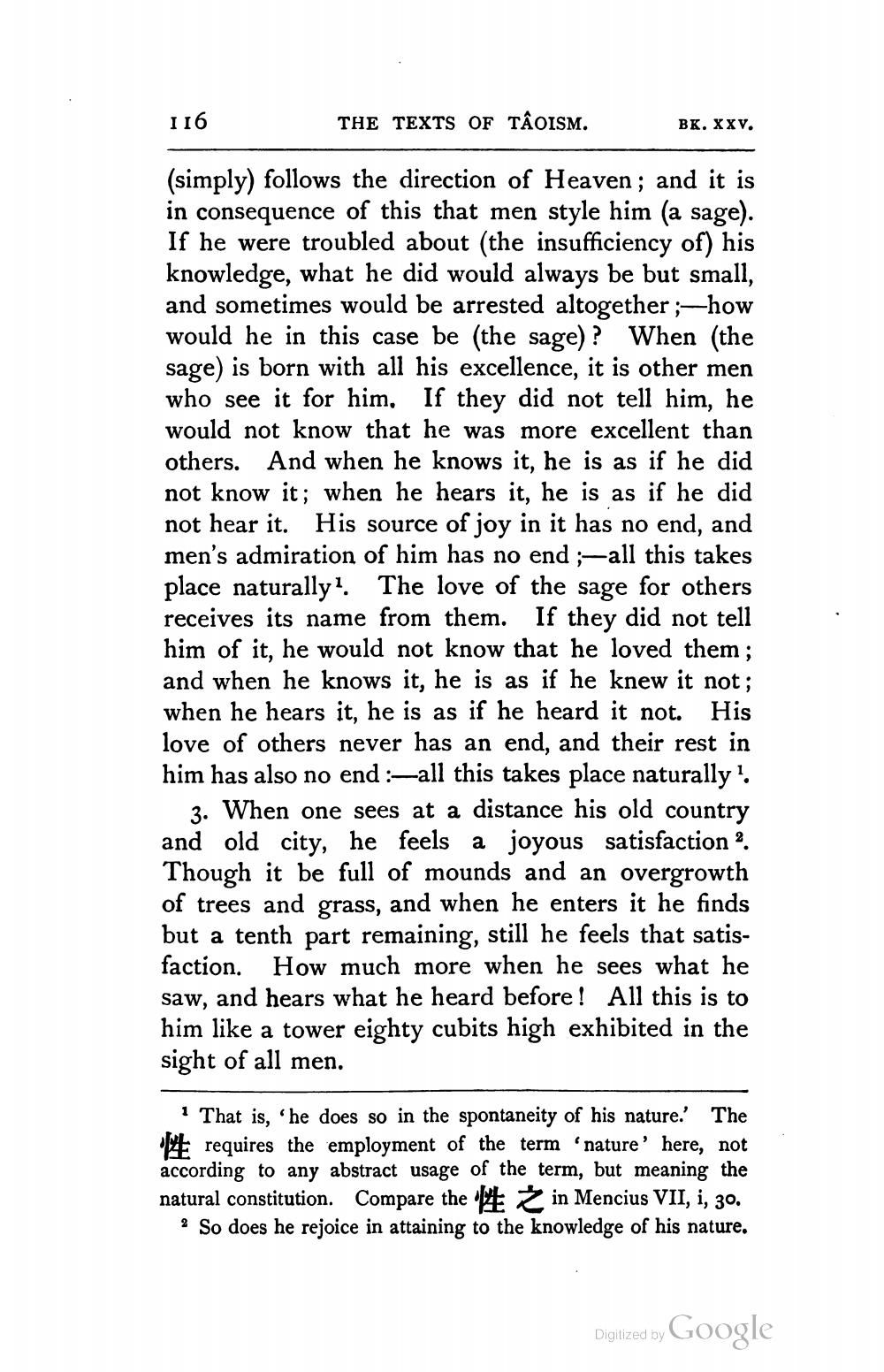________________
116
THE TEXTS OF TAOISM.
(simply) follows the direction of Heaven; and it is in consequence of this that men style him (a sage). If he were troubled about (the insufficiency of) his knowledge, what he did would always be but small, and sometimes would be arrested altogether;-how would he in this case be (the sage)? When (the sage) is born with all his excellence, it is other men who see it for him. If they did not tell him, he would not know that he was more excellent than others. And when he knows it, he is as if he did not know it; when he hears it, he is as if he did not hear it. His source of joy in it has no end, and men's admiration of him has no end;-all this takes place naturally1. The love of the sage for others receives its name from them. If they did not tell him of it, he would not know that he loved them; and when he knows it, he is as if he knew it not; when he hears it, he is as if he heard it not. His love of others never has an end, and their rest in him has also no end-all this takes place naturally'.
BK. XXV.
3. When one sees at a distance his old country and old city, he feels a joyous satisfaction 2. Though it be full of mounds and an overgrowth of trees and grass, and when he enters it he finds but a tenth part remaining, still he feels that satisfaction. How much more when he sees what he saw, and hears what he heard before! All this is to him like a tower eighty cubits high exhibited in the sight of all men.
1 That is, 'he does so in the spontaneity of his nature.' The requires the employment of the term 'nature' here, not according to any abstract usage of the term, but meaning the natural constitution. Compare the in Mencius VII, i, 30. 2 So does he rejoice in attaining to the knowledge of his nature.
Digitized by Google




